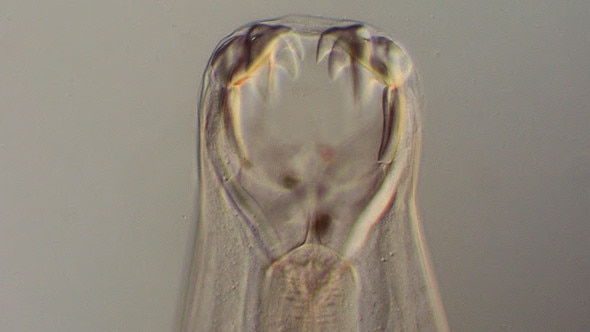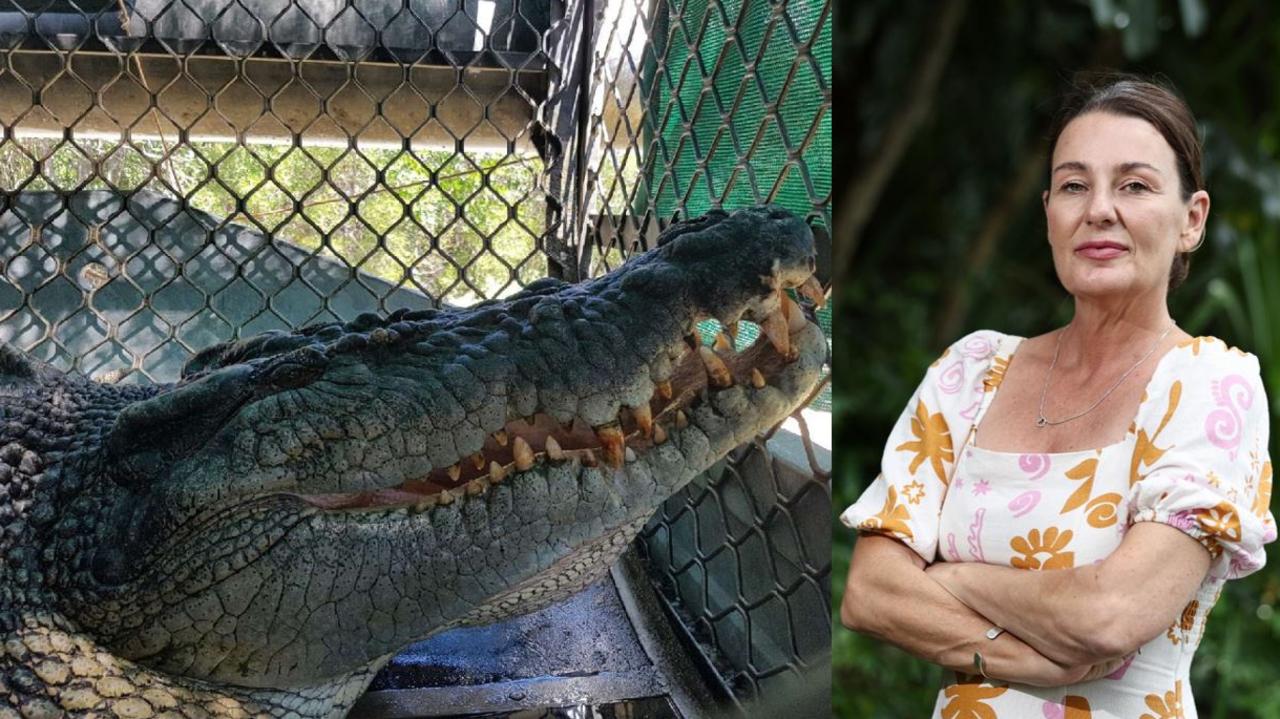Hookworms resisting dog deworming drug in shock Qld study
A Queensland study has revealed a scary-looking parasite is increasingly resistant to dewormers across Australia, posing a health threat to dogs and people.

Pets and Wildlife
Don't miss out on the headlines from Pets and Wildlife. Followed categories will be added to My News.
Hookworms have become increasingly resistant to dewormers across Australia, posing a health threat to dogs, new research has revealed.
Benzimidazole-based dewormers, one of the best methods for treating canine parasites, are at risk of losing their efficacy, with hookworms becoming resistant to the treatment.
A University of Queensland study conducted in collaboration with the University of Sydney found that 70 per cent of hookworm samples studied showed genetic mutations that can cause drug resistance.
The gastrointestinal parasite lives inside a dog’s small intestine and feeds on blood, which consequently causes anaemia, diarrhoea, and malnutrition.
A hookworm infection can cause a dog to become extremely unwell and for puppies, it can become fatal.
The team used advanced parasitological diagnostics to examine samples from more than 100 animals in Australia and New Zealand.
Analysis revealed resistance had spread through hookworm species including the northern hookworm, which had previously been thought to be unaffected.

University of Queensland veterinary expert Dr Swaid Abdullah said the parasites can be transferred to humans through the skin.
“In people, hookworms from dogs can cause cutaneous larva migrans (CLM) disease – or
‘creeping eruption’,” Dr Abdullah said.
CLM causes severe itching and blistering which can lead to a red, winding and snake-like rash.
Dr Abdullah said it was concerning that the best option for treating hookworms in dogs was failing.
“The effectiveness of the drug should always be more than 95 per cent as according to the regulations but in our case, we found that it was less than 95 per cent,” Dr Abdullah explained.
“We did both molecular and in-lab tests for these worms and we collected the worm eggs from dogs and put through these tests and we found that a lot were developing this sort of resistance to Benzimidazole-based dewormers.”
Dr Abdullah said blind treatment or blanket treatments were part of the reason hookworms were becoming resistant.
“I don’t think blanket or blind treatment is going to be the answer for the future. It needs to be more targeted,” he said.
“The best way to take care of our dogs is to test for hookworms twice a year and to target treat for parasites.
“It’s the similar way we treat with antibiotics – we don’t give antibiotics as such unless we need to. The same thing should happen for this as well.”
Dr Abdullah advised pet owners to pick up after their dog immediately as stool was a main source of hookworm infection.
“Make sure you always put it in the bin even at home, because that is how hookworms are transmitted to other dogs and humans,” he said.
“Keep your environment clean and your yard clean as well, and regularly pick up after your dog.”



